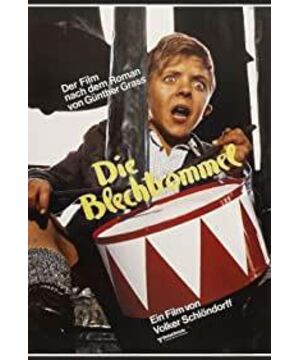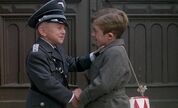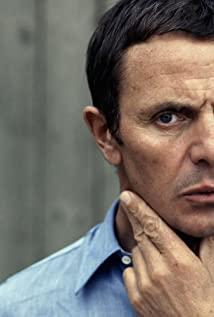The Tin Drum is one of the representative works of Schlöndorff, one of the leading figures of the new German film movement. The film is adapted from the first part of the novel "Danzig Trilogy". The surface of the film is from the perspective of the protagonist "Oscar". From before the start of World War II to the end of World War II, the Oscar family's absurd family ethics story is actually reflecting on the war through various metaphorical means. The technique of metaphor is first reflected in the use of symbols. The film uses the image of fish to symbolize lust, which appears many times in the film. The first time is when Oscar discovers the truth of incest between his mother and his cousin; the second time is poor at the seaside. The fisherman used the dead horse head to catch the eel, the mother began to vomit and realized the mistake of her lust; the third time, after being beaten, she forced herself to face the reality and ate the eel; and finally she knew the sin of incest and lust, but could not stop Down, began to mechanically eat raw fish, and eventually died. At the same time, the director meaningfully arranged the scene of the mother praying in front of the bed during the third blow. Panning on the camera is the image of Christ praying. The image of the fish also has the symbol of Christians in the West, forming a double image superimposition. Effect. In addition, Oscar itself also plays a symbol and metaphor in the plot. Oscar's nominal biological father is a chef, however, his actual biological father is his cousin, a product of incest. The chef and cousin are German and Polish respectively. The symbol of Oscar is actually Danzig, a small town sandwiched between Germany and Poland. Historically and geographically, they belonged to Poland. However, with the outbreak of the war and the rise of German fascism, Danzig's ownership was gradually seized by Germany. During the war, Oscar was gradually controlled and squeezed by the cook father step by step. pressure space. In order to further strengthen the symbolization of this metaphor and symbol, the film adopts a method full of expressionism to construct the film image style. At the beginning of the film, Oscar's narration begins. The first is about his grandmother. This form of narration and sound and picture contrast makes the beginning of the film very absurd in magic realism literature. In the scene where Oscar was born, the director used the POV perspective shooting method to simulate a long shot of Oscar coming out of his mother's womb, which made the image style extremely visually impactful; at this time, the narration was still going on. When promising him a tin drum, Oscar said that because of the tin drum, he would not cry, and he would not be able to return to the womb, which fully elicited the tin drum of the story and strengthened the absurd atmosphere of the film. The audio-visual language of Tin Drum has greatly broken through the conventions and has a unique aesthetic sense of form. At the same time, as a novel adaptation, it not only retains the literary language, but also fully explores The ideological connotation in the novel is further extended and sublimated, and the resolute attitude of reflecting on war and opposing fascism has a strong critical spirit. As one of the representative works of the New German Film Movement, the film led German filmmakers to think about the artistic value and social value of film. It is for this reason that in 1979, it won the Palme d'Or at Cannes in the year it was released, and two Oscars for Best Foreign Language Film the following year.
View more about The Tin Drum reviews











